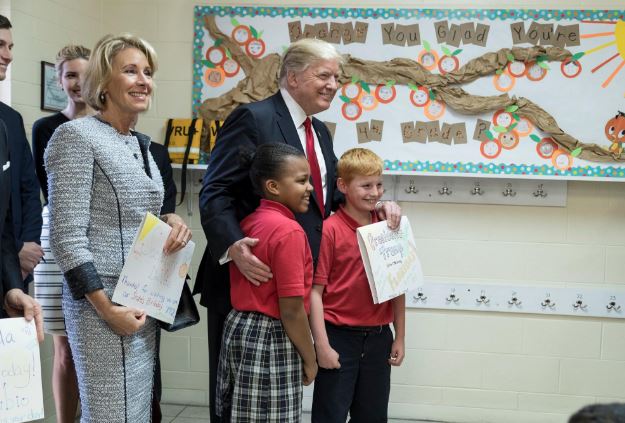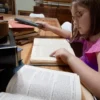Most Read from past 24 hours
American Girl’s Quest to Squelch the History That Birthed It
- Culture, Featured, History, Uncategorized
- February 13, 2026

A report issued this week by The Pioneer Institute, a Boston-based a public policy think tank, sheds light on the rapid growth and diversity of the U.S. homeschooling population. Co-authored by William Heuer and William Donovan, the comprehensive white paper explains that despite a paucity of support from government officials–and outright opposition by the nation’s
READ MORE
Libraries are ideal examples of local, self-directed learning hubs that support all members of a community in learning naturally, without coercion. Late-nineteenth century steel magnate, Andrew Carnegie, who created many of the first public libraries, stated: “A library outranks any other one thing a community can do to benefit its people. It is a never
READ MORE
These literary works were written by authors that are recognized as some of the best of all time. Though many titles which bear their names are still popular and in circulation today, each one of these authors composed literary pieces which have been lost to history. Though we may have a historical record of their
READ MORE
The student protesters at Evergreen State College in Washington are becoming more unreasonable. In a May 24 meeting with the school’s seemingly spineless president, George Bridges, the protestors demanded (among other things) that he excuse them from their end-of-the-term homework, and that he provide them a gumbo (!) potluck. Yesterday, an article by my
READ MORE
A friend recently gave to me a book titled Gist: The Essence of Raising Life-Ready Kids. As a father of three small children, I have an obvious interest in such a book. Nearly every parent wants to raise a happy, well-adjusted child who will blossom into a capable, bright, and self-sufficient young man or woman.
READ MORE
It’s the end of the world as we know it—at least that’s what some people would have us believe about President Trump’s education budget. It’s “a devastating blow to the country’s public education system,” according to National School Boards Assn. CEO Thomas Gentzel. More like a “wrecking ball,” says Lily Eskelsen García, president of the National
READ MORE


